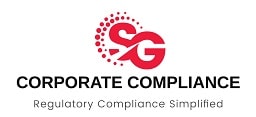Register of Registrable Controllers
From 30 July 2020, all local and foreign companies, limited liability partnerships (LLPs) will be required to file the information of the registrable controllers to ACRA central register. The new regulation aims to create transparent corporate control and ownership of the corporate entities in Singapore.
The information of the controllers that were filed to ACRA, will only be made available to the law enforcement agencies. Generally, the information will be used for the investigation of money laundering offenses and enforcing the law. Members of the public will not have access to the information.
However, having to maintain the Register of Registrable Controllers (RORC) is not something new. Since 31st March 2017, all companies and LLPs have to set up and maintain a RORC at their registered office or the address of their appointed filing agent such as the corporate service providers.
What is the Register of Registrable Controllers?
It is a set of information maintained in this register that includes the particulars of the controllers as well as their contact details. The information was provided and declared by the individual or corporation by replying to the Notice of Registrable Controllers sent out to them.
When should I set up the Register of Registrable Controllers?
All newly incorporated companies and LLPs will be required to set up and maintain the registers of registrable controllers within 30 days from the date of incorporation. The company’s director or the company secretary has to send out the Notice to all reasonably known controllers of the company to obtain the declaration and completed information.
Who is a Registrable Controller?
A Controller is defined to have a significant interest or control over the company. Generally, an individual will be considered to be a controller when a person has interest or shares with more than 25% stake in the company.
A Controller who has significant control over a company is a person who:
- Has the authority to appoint or remove the director who has the majority power at the director’s meeting;
- Hold more than 25% of the voting rights
- Able to influence or control over the company’s affairs
Minimally, ACRA expects companies to send a notice to all its shareholders and directors asking whether they are the controllers or know any controllers on an annual basis.
What is the penalty for non-compliance?
The maximum penalty for non-compliance is S$5,000.



